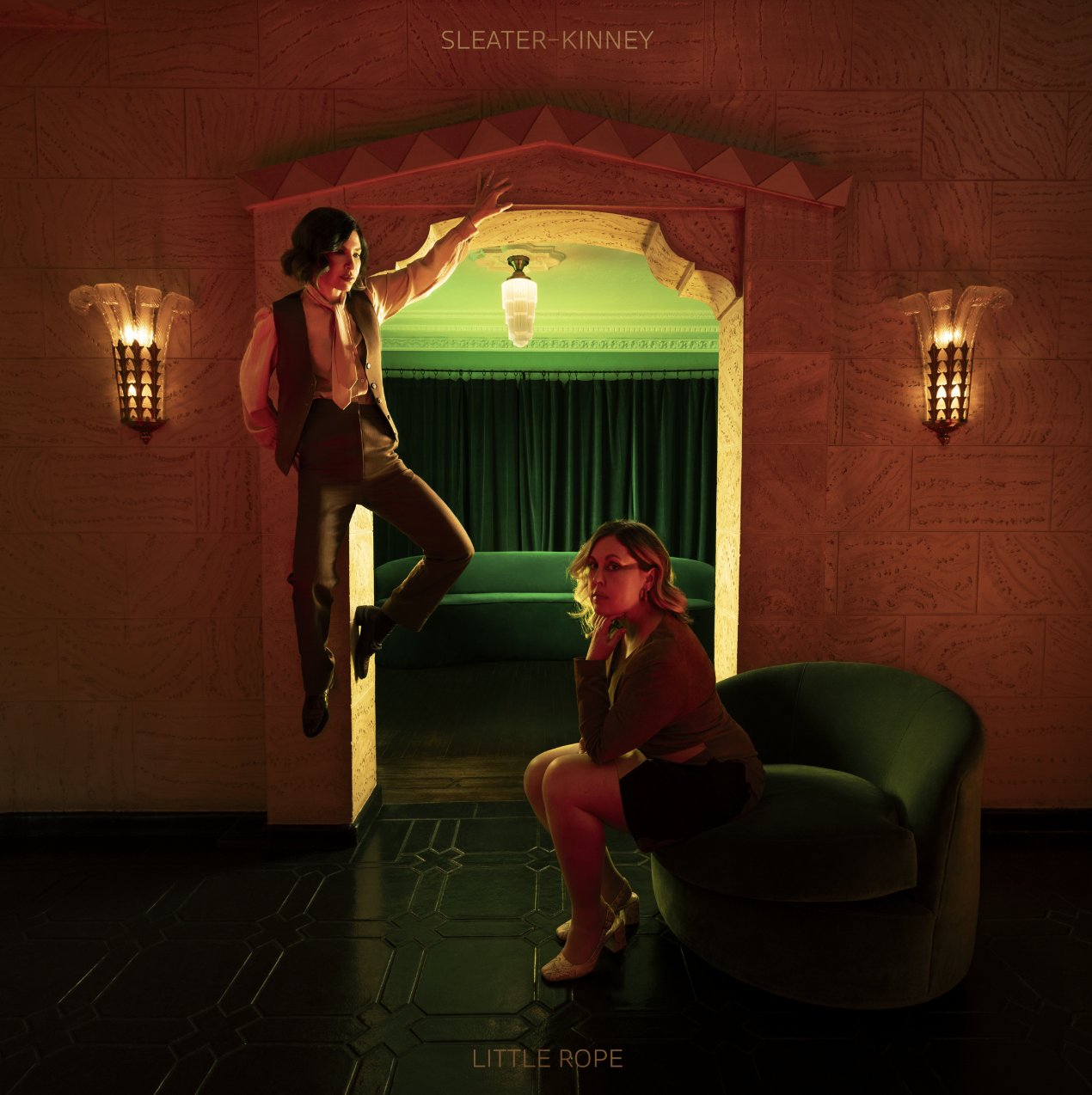SLEATER-KINNEY RELEASE HIGHLY ANTICIPATED ALBUM ‘LITTLE ROPE’
Today, Sleater-Kinney release, Little Rope, their eleventh studio album and first for Loma Vista. The album was named one of the most anticipated releases of the year by Rolling Stone, NPR, Pitchfork, Vulture, Paste Magazine, them, Consequence, Esquire and more. Little Rope is one of the finest, most delicately layered records in the band’s 30-year career, as evidenced by the album’s singles 'Hell', 'Say It Like You Mean It' and 'Untidy Creature'.
To call Little Rope flawless feels like an insult to its intent – it careens headfirst into flaw and brokenness – a meditation on what living in a world of perpetual crisis has done to us, and what we do to the world in return. On the surface, the album’s 10 songs veer from spare to anthemic, catchy to deliberately hard-turning. The New Yorker has also called it “Sleater-Kinney’s most tender album.” But beneath that are perhaps the most complex and subtle arrangements of any Sleater-Kinney record, and a lyrical and emotional compass pointed firmly in the direction of something both liberating and terrifying: the sense that the only way to gain control is to let it go.
Album stand-outs like 'Hunt You Down', 'Needlessly Wild' and 'Dress Yourself' showcase the album’s interplay of lyrical and musical moods, which give the record an immense depth. Even the catchiest hooks are hiding something. The opening riff on 'Hunt You Down' sounds a warning that smashes against a chorus delivered with a hint of deceptive sweetness: “The thing you fear the most will hunt you down” – a line Brownstein heard in an interview with a funeral director, said to him by a father preparing to bury his child. 'Needlessly Wild' starts out delicious, the single-syllable “wild” bending like taffy. But then the lyrics betray something a little more malicious, a little more marked by pain, and soon “I’m needlessly wild” festers into “I’m needless and wild, needless and wild.” Of 'Dress Yourself' which contains the lyrics “dress yourself in clothes you love for a world you hate,” Carrie Brownstein told The New Yorker “I think what kind of haunts me about that song is that I wrote the lyrics, exactly as they are now, before my mom died. The chorus is very much about the pain I have in my life. Or, a pain. A long-standing pain. Of depression, or a sense of feeling misplaced sometimes. It was surreal to have her die after I’d written it. It was like I’d gifted the song to myself beforehand.”

